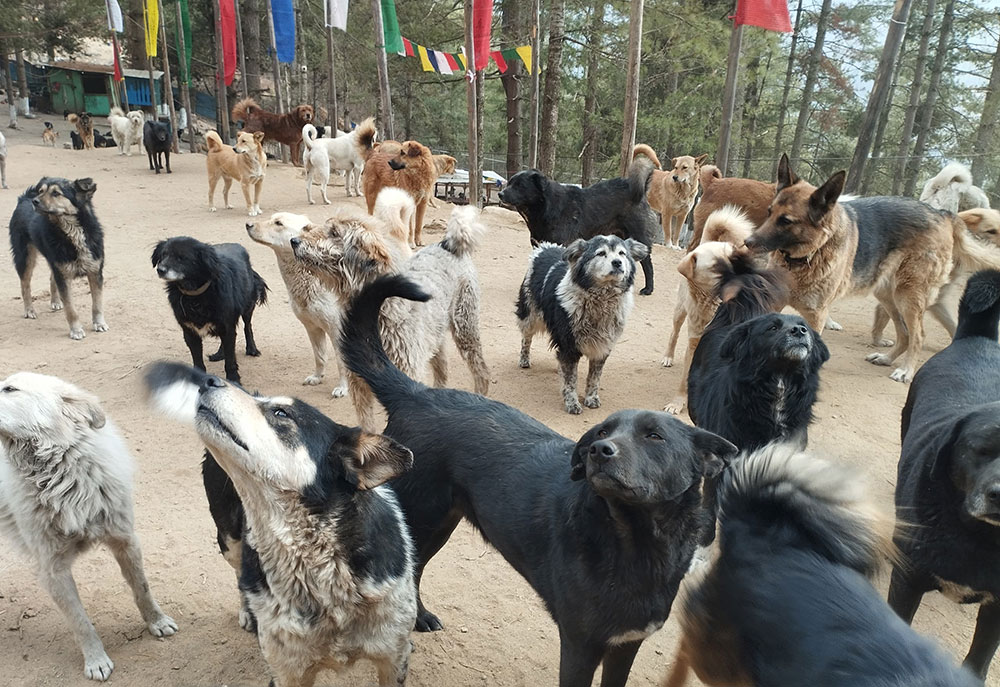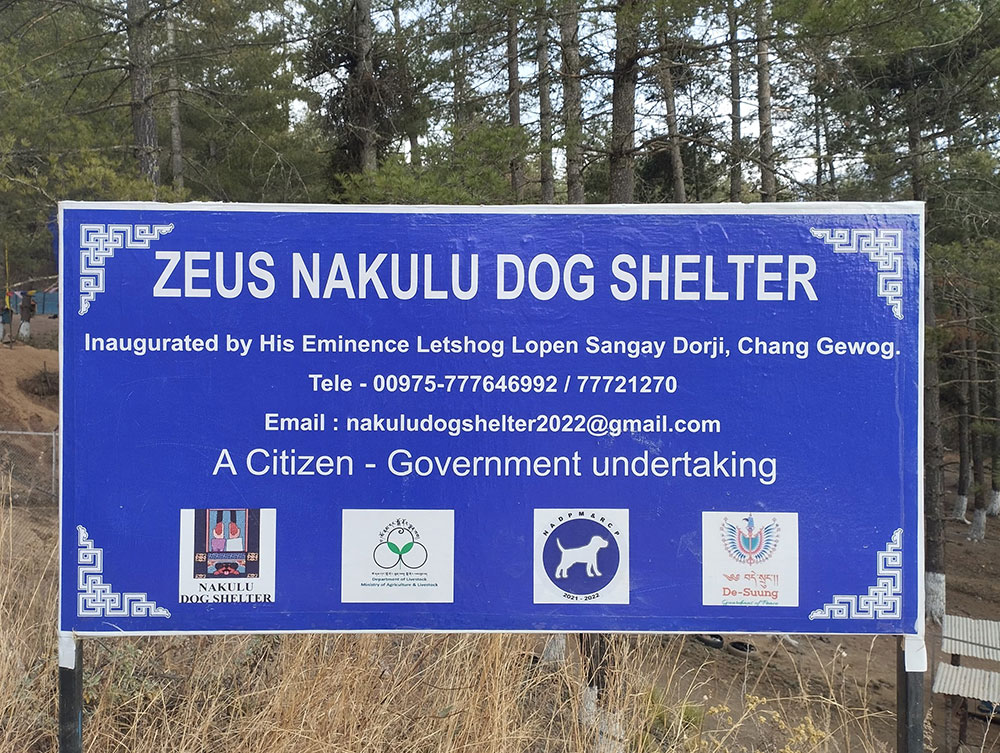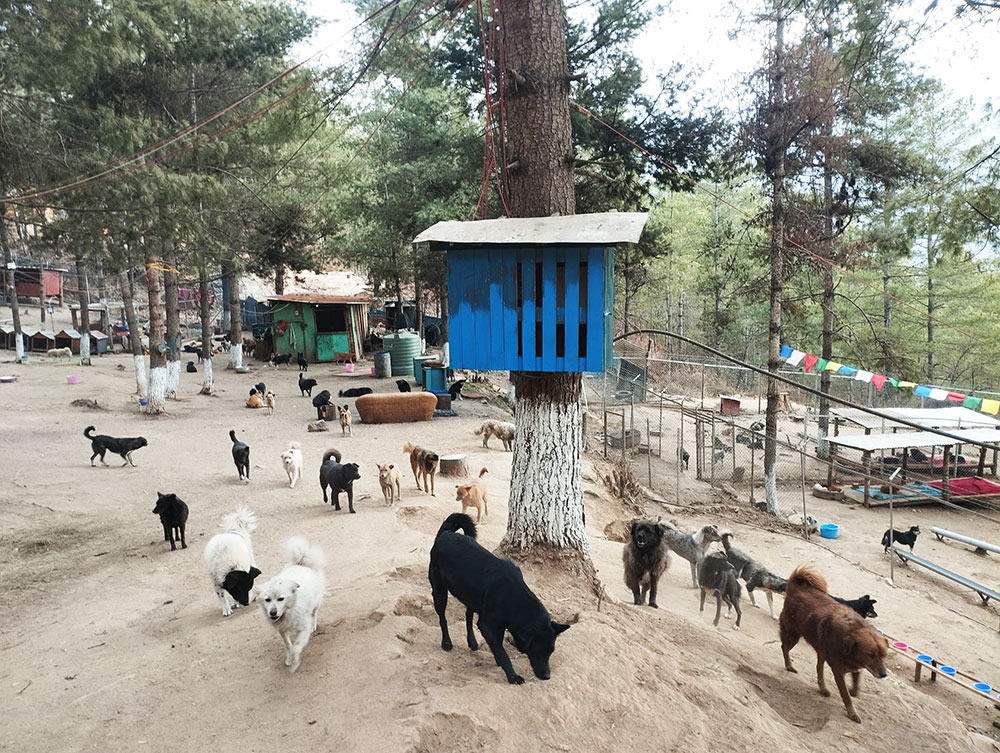YK Poudel
The Zeus Nakulu Dog Shelter in Semtokha has so far rescued, treated, and sheltered 390 dogs in Thimphu in the past year since its establishment. The Paro branch of the shelter is currently catering to another 200 dogs including some puppies.
It has also attracted tourists. Around 15 tourist groups have visited the centre to date.
Zeus Nakulu Dog Shelter, a citizen-government undertaking, was opened on January 14 last year to ensure the safety of the residents and provide shelter to aggressive dogs in the community.
The centre located about 2.5 kilometres from Semtokha highway is managed by a CSO called Zeus Nakulu Dog Shelter Organization (ZNDSO) with its 10 employees—four in Thimphu and six at Paro who look after and manage the shelter at Jizhigang, Dopshari in Paro.


The shelter has 390 dogs
The dogs were lifted from various parts of Thimphu and Paro as part of the Nationwide Accelerated Dog Population Management and Rabies Control Programme (NADPM and RCP), last year.
Programme Director of ZNDSO, Thinley Norbu, said that in the past one year, the centre invested Nu 4.2 million to construct staff quarters, set up CCTV cameras, fencing, bathing and grooming space with a free playground planned for the dogs. The centre plans to extend the space where dogs can freely roam around in the campus.
“As a non-government organization, funding is a major challenge, yet dog lovers have become members of the organisation contributing on a weekly or monthly basis,” he said.
According to Thinley Norbu, the dog shelter in Paro was handed to the organization as the dzongkhag faced challenges sustaining it. “Taking charge of both the shelters gives me assurance that our vision of giving back to the community is appreciated,” he said.
The group has a rescue team to bring the aggressive dogs to the shelter. The team can be reached through Zeus’ Facebook page.
Nima Gyeltshen, 35, has been working at the shelter for a year now. He said that the centre had planned to raise funds through official means in its initial days when it was facing challenges. “However, interested individuals have been assisting in its sustainability. The shelter is special—an individual interested in donating old clothes or financial assistance for a good cause would make a difference for the dogs here,” he said.
The shelter has five enclosures where dogs move in comfortably, including an isolation room to treat sick dogs. The dogs are microchipped and monitored.
As a caregiver in the field, Nima Gyeltshen feels that collaboration and partnership with the livestock department are crucial.
“The understanding is that the National Veterinary Hospital under the Department of Livestock would provide technical support such as sterilisation, treatment, and microchipping. Nonetheless, when the dogs are sick in huge numbers, the unavailability of adequate staff is a challenge,” he said.
Similarly, he shared that the water supply was also erratic, especially during the winter season when water froze. The thromde office has been assisting the shelter with a tank full of water supplied every three days.
One of the registered donors said that the centre has come as a support to the community when free-roaming stray dogs around the city had troubled the residents. “The donations made have helped to improve service for the dogs. Proper space and increase in facility is an outcome of the support from the donors,” the donor said.
Nima Zangmo, one of the residents of Babesa said that the number of dog bites and noise at night has reduced through the government intervention on NADPM and RCP. “The streets are free of aggressive dogs.”
As of October 2023, Bhutan achieved nationwide 100 percent sterilization with 61,680 dogs sterilized, anti-rabies vaccination of 61,331 dogs and microchipping and registration of 32,544 pet dogs under the collaborative effort of the livestock department in collaboration with DeSuung Programme.


